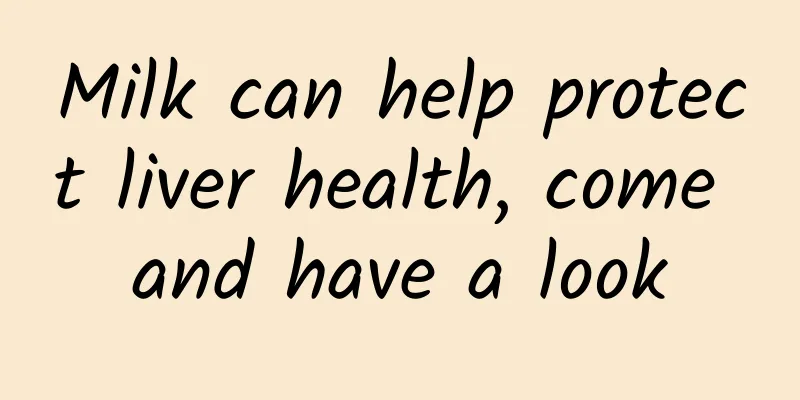Milk can help protect liver health, come and have a look

|
Out of sight, out of mind, we don’t tend to pay much attention to our livers. But without them, we can’t live, so taking care of our livers is just as important as taking care of our hearts. New research suggests that dairy products may help maintain liver health, as evidence suggests that people who regularly consume dairy products have a lower risk of non-alcoholic fatty liver disease (NAFLD). NAFLD affects an estimated 25% of the world’s population and is a leading risk factor for long-term liver disease. If left untreated, this common condition can lead to liver damage, cirrhosis and even liver cancer, and is closely associated with a variety of metabolic syndromes, including obesity, high blood pressure and insulin resistance. The best way to prevent NAFLD is to ensure you have a healthy lifestyle, including eating a healthy diet. This may mean cutting back on red and processed meat, fast food and sugary drinks – all of which carry a higher risk of NAFLD – and opting for more fruits, vegetables and whole grains. Until now, it has been unclear whether dairy consumption is associated with NAFLD risk. Although dairy products are rich in healthy nutrients, some scientists have previously worried that the saturated fat in dairy products could harm liver health, but recent findings are beginning to allay concerns that dairy products can cause liver disease. Recently, researchers pooled and analyzed 11 studies involving a total of 43,649 participants to clearly understand the relationship between dairy intake and liver health. By summarizing these research results, the researchers found that consuming dairy products can reduce the risk of non-alcoholic fatty liver disease. The study showed that there is an inverse relationship between the two, that is, people who consume more dairy products have a lower risk of non-alcoholic fatty liver disease than those who consume less dairy products. Overall, a higher intake of dairy products can reduce the risk of non-alcoholic fatty liver disease by 10%. Specifically for different types of dairy products, the researchers found that yogurt can reduce this risk by 12%, while milk can reduce it by 14%. However, the researchers failed to find an association between cheese and the risk of non-alcoholic fatty liver disease. The researchers believe that although dairy products contain saturated fat, the effect of dairy intake in reducing the risk of liver disease may lie in the dairy matrix, that is, the physical state of the dairy product itself. In addition, dairy intake can improve blood lipids, reduce triglycerides and total cholesterol (closely related to liver fat accumulation), and increase high-density lipoprotein cholesterol. However, the researchers also cautiously stated that the observational studies involved in this summary study have different levels of data quality, and the relevant research results also need to be confirmed by further large-scale studies. However, their conclusions are consistent with another recent review paper. This review paper shows that people with higher dairy intake have a lower risk of metabolic syndrome, hypertension, type 2 diabetes, stroke and cardiovascular disease. |
Recommend
Causes of stomach pain in late pregnancy
In daily life, many pregnant friends feel that th...
What is the best sleeping position for pregnant women?
Pregnancy is a very difficult time for a woman, s...
What are the symptoms of poor blood circulation in women?
Many women have rosy and shiny faces, and they ex...
What to do if your vulva itches at night
I believe everyone is familiar with the symptom o...
[Medical Q&A] How to prevent diabetic foot?
Author: Zhu Jichao Beijing Tiantan Hospital Affil...
Why do we grow gray hair when we are stressed? Is it true that “worrying about hair turns gray overnight”?
Expert of this article: Wang Li, attending physic...
In addition to taking medicine on time, doctors from West China University of Political Science and Law say that you need to do these 3 things to control high blood pressure!
No obvious symptoms in the early stage Difficult ...
How to treat excessive sweating after miscarriage?
Many female friends will develop some diseases af...
How to check leucorrhea during pregnancy
Although there is no menstruation after pregnancy...
What is the special relationship between women's tears and desire?
In the relationship between men and women, women ...
How can women prevent aging?
Before you know it, time flies by and wrinkles ap...
How long does it take for menstruation to occur after back pain?
I believe many female friends know that once thei...
What are the functions of the pleura?
The pleura is a very smooth serous membrane that ...
How to protect your eye health while staying at home
This is the 3859th article of Da Yi Xiao Hu How t...
Drinking water reduces wrinkles. Women should beware of 14 "aging agents"
Your complexion is getting worse and worse, and y...









